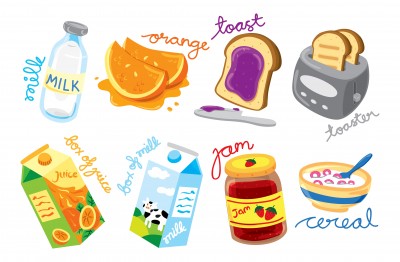Many toddlers develop food preferences that can irk and frustrate the efforts of their parents and care-givers. Most experts agree that this is likely a phase that will pass.
It’s no secret that every mother loves watching her child tuck into his meal with gusto and enjoyment. So it’s bound to be disconcerting when your once-food-enthusiast begins to develop food preferences (among other sensitivities) and assert their will by rejecting certain foods on their plate.
Your Toddler’s Eating Habits
According to experts, it’s common for toddlers to vary their eating habits from day to day, and for them to resist new foods until you’ve served it to them several times. This may be partly due to changes in your toddler’s nutritional requirements, or proof of his growing independence, as he learns to make choices on his own – an important skill he’ll need to develop over the years.
While every child will have a slightly different palate, preferences, and level of persistence, you can be sure that there will be some challenging mealtimes ahead. Some outgrow these preferences – like a phase they are going through – while others cling on to their new ‘principles’ for years to come, perhaps for the rest of their lives.
Resist the urge to offer snacks or sweets in an effort to get your toddler to eat more. Food should never be used as a bribe or punishment, as it can have adverse effects on your child’s psychology in terms of self-identity, security and self-esteem.
As any good parent, you want your child to be taking in the nutrients he needs, and eating a balanced meal. It’s only natural that you worry when Junior rejects all his greens and goes on a beef rampage.
What’s a mother to do?
Take heart! Many child nutritionists believe that our children have an innate sense of how much food their body needs to grow and be healthy, and it’s up to them to decide what they’re going to eat to get what they need. The best thing we can do is to provide plenty of healthy choices in a positive, relaxed environment so that mealtimes are an enjoyable time.
Take a leaf from the books of these mothers, who have discovered ways to manage their child’s food aversions.
“I started making bentos in an attempt to tempt my elder son, Junior J, to eat more. He was a fussy eater, and it was a challenge getting him to come to the table at meal-times or self-feed, and he wasn’t keen on eating meat. Making the food look attractive seemed to increase his interest in eating and self-feeding, and helped him to eat better. And I must admit I do get a sense of satisfaction making those meals. On busy days, we sometimes just have sandwiches for lunch, and I just dress it up by using a sandwich cutter!”
- Thea: Combine creatively
“Find out what foods your child enjoys, and then capitalize on that knowledge! At the moment, my son avoids all vegetables on his plate! But I know my son loves his pasta, so I’ll add baby spinach leaves or steamed pumpkin to the pasta sauce and let it cook till it’s really soft and blended into the sauce. He also likes to eat muffins, so I’m always on the lookout for recipes that integrate things like sweet corn, fruits and fruit pulp into the mix!”
- Jingmei: Treasure hunt
“I motivate my son to finish his food by making sure there’s always something there that he loves. Everything is cut into bite-size chunks first, then mixed well together. After that, I point out to him the item that he likes (eg. prawn), and encourage him to “see if you can find all the prawns in your bowl!” In the process of “excavating” for his prawns, he’s bound to eat up a fair amount of whatever else is in his bowl as well!”
- Sharon: Let her go hungry
“Most meals, I have to spend a considerable amount of time and energy coaxing my daughter to eat, and even then, she rarely polishes her plate clean! I used to agonize about her not finishing my ‘quota’ for her. I’ve since learnt to let go of some of these expectations and let her decide when she’s had enough to eat to be full. This means that if she stubbornly refuses to eat what I’ve cooked, I don’t get mad at her, and she doesn’t have to finish the food – but she doesn’t get to eat any snacks or other foods until the next meal. She can choose to eat what she doesn’t like or go hungry, and nobody gets ‘hurt’. Meanwhile, I try to make sure she take enough milk between meals so her body has the nutrients it needs.”
By Dorothea Chow.
* * * * *
What do you do to handle your picky eater? Leave your comments below!
Want to be heard 👂 and seen 👀 by over 100,000 parents in Singapore? We can help! Leave your contact here and we’ll be in touch.























































